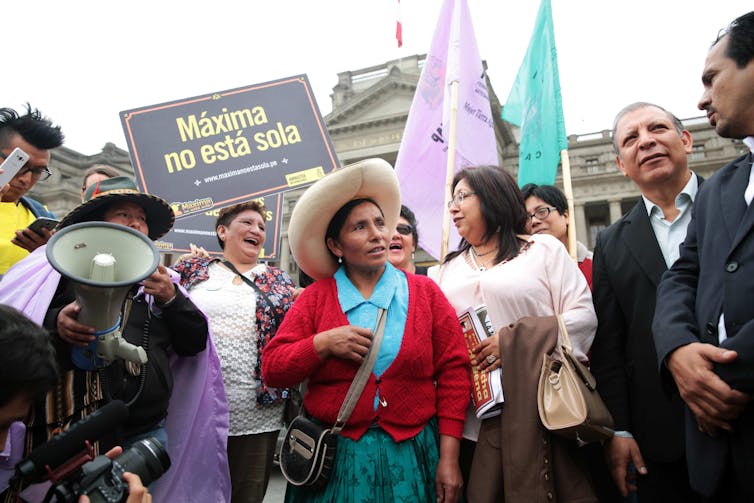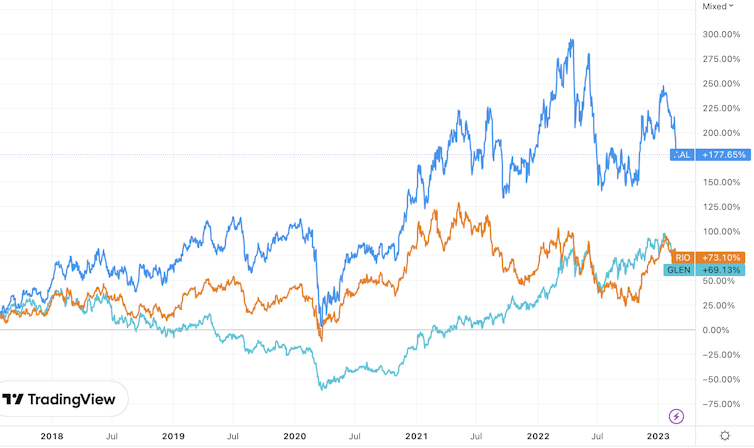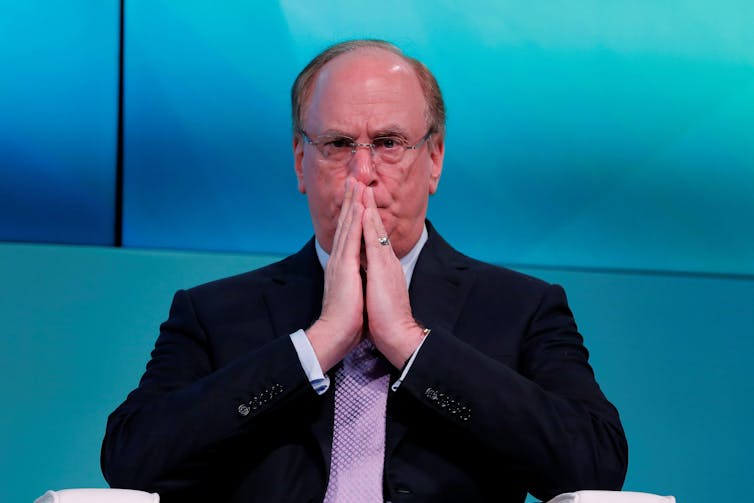Ron DeSantis, Florida’s Republican governor and likely future presidential contender, has opened up a new front in his party’s war on “woke capitalism”. He is proposing to change the rules around how public bodies within Florida borrow from the markets by issuing bonds.
The proposal is that they would no longer be able to work with ratings agencies that value the bonds using the ESG (environmental, social and governance) sustainability criteria that have become commonplace in the world of finance in the past few years. Public bodies and companies with lower ESG scores can see this reflected in their borrowing costs, and some politicians on the right object to this “interference” with market valuations.
DeSantis already pledged in December to pull US$2 billion (£1.7 billion) of the state’s investment from BlackRock, the world’s largest asset manager and a key player in the ESG movement. This was after 19 Republican state attorneys-general told the asset manager in a letter: “Our states will not idly stand for our pensioners’ retirements to be sacrificed for BlackRock’s climate agenda.”
Eighteen states have also either proposed or adopted legislation over the past two years restricting state business with financial institutions that use ESG criteria to limit funding to industries like fossil fuels.
According to Republican senator Kevin Cramer from North Dakota, banks and asset managers “should ignore calls for ESG and woke capitalism and stick to what they do best”. Former vice president Mike Pence wants the the next Republican congress to work to “end the use of ESG principles nationwide”.
What they get wrong
Newly in charge of a Congressional branch, Republicans are taking their quest to Washington, DC. Andy Barr, the new chair of the House financial services subcommittee responsible for financial institutions, claimed America’s financial system had been “co-opted by the intolerant left that is intolerant of diversity”. For the US to be economically competitive, he said “we need our financial system to provide equal access to capital to all kinds of businesses”.
This revealed either a remarkable ignorance about financial markets and the financial risks posed by environmental and social challenges – or he was being cynically misleading to score political points.
The notion of equal access to capital flies in the face of one of the central tenets of capitalism. The ability of different organisations to borrow and the price they pay is never equal. It depends on the risk of the investment and how many investors will take that risk.
Consider mining. It inherently impacts the environment and surrounding communities. Communities can tie owners up in lawsuits or even block mining access if their concerns go unaddressed. This can affect the mine’s profitability.
Researchers have shown how two gold mines with the same volumes of gold and extraction costs can be valued radically differently depending on local support. ESG ratings seek to capture such factors to enable investors to make better informed decisions.

For asset managers like BlackRock, it’s also about customer demand. If investments that mitigate ESG risks offer a better risk-adjusted return and investors are increasingly shunning certain companies – be it gun manufacturers or fossil fuel producers – it will affect where money flows.
BlackRock’s CEO, Larry Fink, recently said that his company lost about US$4 billion in assets from Republican-led states withdrawing money in 2022, but added US$400 billion overall. Nothing nefarious or political here, just capitalism at work.
Owners of dirty assets can still raise capital. It’s just that the price may be higher. Look at the divergent coal strategies of mining giants Rio Tinto, Anglo American and Glencore.
Rio Tinto entirely exited coal in 2018. Anglo American has created a separate entity for these assets called Thungela, while Glencore still has coal in its portfolio and proposes to run it down responsibly over time. (Full disclosure: I hold the Rio Tinto Chair in Stakeholder Engagement at IMD, but the company has no influence over my research.)
Investors can choose between these strategies. At any moment, these companies’ borrowing costs will reflect the consensus assessment of the underlying risk, including from ESG factors.
Glencore has not been cut off from capital markets and is doing quite well – reporting record 2022 profits fuelled largely by coal. Yet its share price has not outperformed its peers, reflecting investor concerns about the long-term strategy.
Mining share prices 2018-23

Woke capitalism?
David Remnick, editor of The New Yorker magazine, recently said that for “conservatives now, wokeness is the root cause of everything negative”. He interviewed linguist Tony Thorne, who traced the term to a 1971 Black liberationist play in which the main character says “I must stay woke”.
Thorne explained that for today’s progressives, particularly following Black Lives Matter, “woke” became synonymous with “socially aware” or “empathetic”. But conservatives, he said, made this vague term a proxy for leftist self-righteousness, and so “anti-woke” became the rallying cry for any social change they oppose – just like “political correctness” a generation ago.
While US conservatives are particularly fixated on anti-wokeness – “Florida is where woke goes to die,” intoned Governor DeSantis in his November victory speech – it is not just an American phenomenon. For instance, the Atlantic magazine’s Thomas Chatterton Williams recently observed: “The French are in a panic about Le Wokisme.” Europe’s debate has not yet spilled into financial markets, though it may only be a matter of time.
By labelling ESG “woke”, conservatives imply that large parts of the US$100 trillion global asset management industry have been hijacked by leftists. Having spent time with lots of asset managers, it’s nonsense.

Of course, not all is well in ESG land. Greenwashing is rampant, and rating agencies and asset managers get criticised for insufficiently scrutinising firms’ actual ESG performances.
Most dramatically in May 2022, German prosecutors raided the offices of DWS, Deutsche Bank’s asset management unit, following allegations that it had vastly overstated its ESG investments. Lawsuits are ongoing, and DWS denies it misled investors.
Yet the idea that a firm would dress up “normal” assets as ESG simply demonstrates the investor demand for these products. Equally, greenwashing is pilloried because it makes it harder for investors to assess the underlying risks to a firm’s future profitability. These problems highlight the need for better standards and regulation, which is to be expected in a nascent field like this.
Despite conservative opposition, analysts expect ESG investment to almost double over the next three years to nearly US$34 trillion, representing one in every five dollars invested worldwide. This is not an aberration of free-market principles but a reflection of them. That US Republicans are puzzled by this says more about them and the echo chambers in which they have been moving than about the state of ESG.

